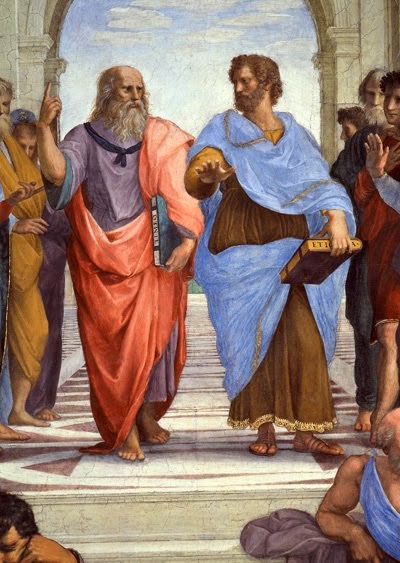In the Samoan myths of the afterlife, the soul of the poor is food for
the soul of the noble and rich [Frazer, 1922]. Are we living in the Samoan
afterlife? Well, for some of our unfortunate contemporaries the situation is
not so different. Simon Rippon has discussed the issue in an interesting paper
on the Journal of Medical Ethics, where he analyzes the thesis of the moral and
economic benefits for the poor which provides the free market of live donor organs.
He expresses the thesis of the Laissez-Choisir
(LC) argument in three premises.
P1. People in poverty
who would choose to sell their organs if a free market existed must regard all other
options open to them as worse.
P2. If we take
away what some regard as their best option, we thereby make them worse off, at
least from their own perspective.
P3. If a policy makes
some worse off from their own perspective, it would be paternalistic for us to judge
otherwise and to implement the policy on their behalf. We ought not to be
paternalistic in this way. Therefore, we ought not to prohibit organ markets for
the supposed good of those in poverty who would choose to sell their organs if
a free market existed.
LC has been
subscribed by Julian Savulescu [2003] and by Gerald Dworkin [1994] on the
grounds of the freedom of choice of the sellers and the paternalism of any
attempt to regulate the market. Janet Radcliffe Richards [Radcliffe et al.,1998],
on the other hand, has subscribed LC on the grounds of a worse scenario if the
prohibition is reinforced. Rippon’s paper refutes LC's claims on the grounds that sometimes
you may hurt people by giving them an option that they would be better off
taking: the addition of the option makes it
more difficult or costly to perform the reasoning necessary to reach the best
decision. His argumentation refutes P2, but fails to address what from my point
of view is at the center of this moral problem: hypocrisy, or put in ethical
terms, the inconsistency between the moral values of society and its actions.
The appeals to
freedom of choice are a mockery: freedom of choice is always limited by initial
conditions and only possible in a system with perfect flow of information, i.e.,
is just an ideal condition, a convenient narrative of domination which
justifies many abuses. The sellers of organs do not know the full scenario but
simply get into further trouble, buying themselves, at best, some extra-time: we are offering to the person a floating device so s/he
can be saved to be properly eaten lately by the sharks. When we appeal for the
freedom to decide upon our own body, we forget that such a right is denied at
large throughout the world, as we see in the relation to the free use of drugs,
or in war situations, or in terminal diseases: the restrictions on the freedom
of choice for the individual in these three scenarios is inconsistent with the
approval of a free live donor market. We have to decide, the body belongs to
the individual or it does not. But even if we reach the civilized point of
letting the individual decide upon his (her) life and body, the idea of a free
market does not necessarily follows. Why should there be market conditions for
human transplanting? The still on-going belief on the supernatural capacities
of the invisible hand of the market, the old Laissez Faire, is an old
superstition linked to other supernatural beliefs and has no grounds on
economic data: market crisis are paid by the population at large through public
funds.
There are not easy and straightforward rational solutions when
ontologies are involved, especially when those are otherworld valuations. The live donor market problem has,
nonetheless a solution based on human valuations. If we value life and freedom
of choice we cannot interfere in the free donation of organs, but it seems
rather perverse and human degrading the idea of solving (or even alleviating)
poverty through merchandizing human body parts. Although prostitution reaches
beyond the sex domain into realms of manipulation and domination, when we are
dealing with body parts, nobody would sell a part of his/her body if the need
for survival was not urgent. The control of the organ market by society will
force other solutions for poverty, more permanent and consistent with the
values that we are teaching to our children and write in our Constitutions, the values that can hold a
community as a human social contract. From my point of view, our own life
cannot be maintained at any price. We have reached to this point of social evolution
precisely by standing against barbarisms and abuses. The ridicule and shallow
proposals for a human life based only on money valuations, are an insult against
intelligence, and therefore, against life.
References
Dworkin G. [1994]Markets
and Morals. In: Dworkin G, ed. Morality,
Harm and the Law.
Oxford: Westview. 1994. 155–61.
Frazer, James. [1922]. The Belief in Immortality and the Worship of
the Dead. Vol. 2. MacMillan and Co.,
London.
Radcliffe Richards J, Daar A, Guttmann R, et al. [1998]
The case for allowing kidney sales. Lancet.
1998. 351:1950–2.
Rippon,
Simon. [2012] Imposing options on people in poverty: the
harm of a live donor organ market. JME. Med Ethics 2014;40:145–150.
Savulescu J.[2003] Is the sale of body parts wrong? JME
2003;29:138–9.

.jpg)
No comments:
Post a Comment
Please leave us your opinion. If your comments fit the purpose of this blog we will publish them.